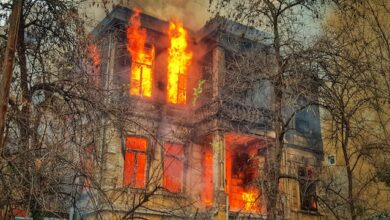The Basics of Fire Safety: What Everyone Needs to Know
KEY TAKEAWAYS
Fire safety is one of those subjects that most of us think we understand, yet few of us truly do. The safety of our homes, families, and workplaces depends on it. And while it’s always better to prevent fires, it’s equally important to be prepared should one break out. Let’s explore the fundamentals of fire safety, ensuring that everyone is armed with the knowledge they need.
Know the Common Causes
Surprisingly, many fires are caused by everyday activities and items that we might not give much thought to. These include:
- Cooking: Unattended cooking and improperly stored oils can quickly ignite.
- Electrical equipment: Overloaded sockets or frayed cords are more hazardous than you might realize.
- Cigarettes: It only takes a moment’s distraction for a cigarette to get out of hand and cause a blaze.
- Candles: While they look and smell lovely, candles can easily cause a fire – they require constant vigilance.
Detection Systems
Nothing beats an early warning system when it comes to preventing and dealing with fire in your home. It’s certainly worth (and perhaps even legally required) to work with providers like Lucid Fire & Security Ltd to ensure you can detect fire easily in your property. This includes installing smoke alarms on every floor and in bedrooms. Regularly test them to ensure that they are functioning correctly. Plus, carbon monoxide detectors can also be helpful. While they’re not directly related to fires, they often come as part of the package and can save lives by alerting you to deadly carbon monoxide levels.
Have an Exit Strategy
No matter how many alarms are fitted in your home, you need to have an escape plan in place for them to work as intended.
- Know your exits: If you’re moving into a new home or workplace, spend some time familiarizing yourself with all possible exit routes from every room.
- Practice makes perfect: Consider holding occasional fire drills. It’s the best way to ensure everyone knows what to do in an emergency.
The Right Equipment
Having the appropriate fire safety equipment available can make all the difference. Consider getting the following:
- Fire extinguishers: Understand the different types and their uses. For example, water-based extinguishers are suitable for wood and paper fires, but not for electrical or oil fires.
- Fire blankets: These are especially effective for kitchen fires. Store them in a spot that’s easy to access, so they are there when you need them.
Habits for Safety
When it comes to protecting your home from fire, there are several little habits that can go a long way in ensuring your safety and that of your family. For example:
- Don’t overload: Keep electrical sockets from becoming overloaded and use anti-surge extension leads where possible.
- Safe storage: Store matches, lighters, and flammable liquids safely and out of reach of children or pets.
- Night-time checks: Before you go to bed, ensure that all appliances are switched off and candles are out.
Fire safety isn’t just about responding when there’s a blaze. It’s about being proactive and taking steps to prevent fires from happening in the first place. With the right knowledge, tools, and mindset, we can ensure our safety and protect our homes and workplaces.
